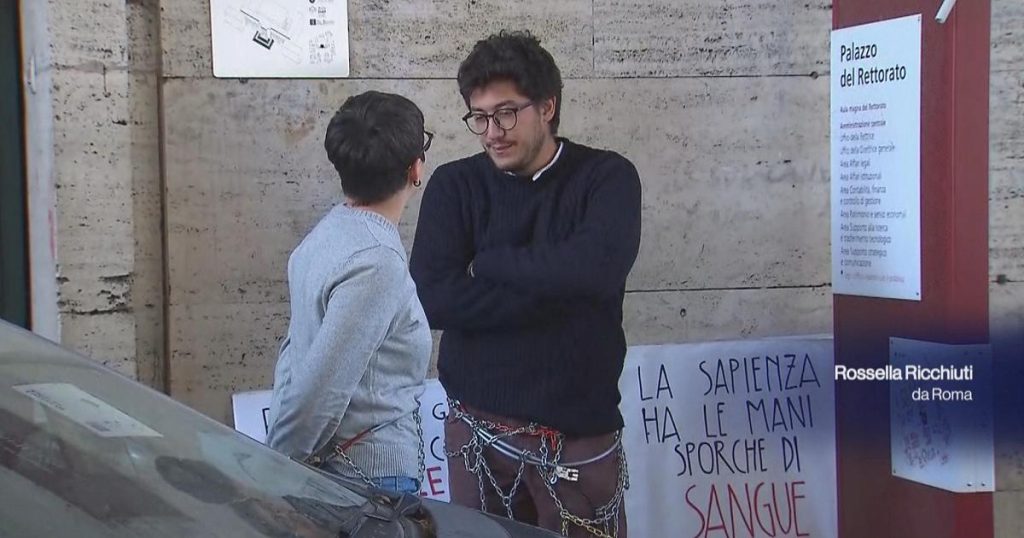Students from various collectives have been on strike and have chained themselves in front of the rectorate of La Sapienza University in Rome for the past three days. They are protesting the complicity of the university in what they see as a genocide and are demanding the resignation of the Rector Antonella Polimeni. The students claim that the university’s administration has failed to address their concerns and have accused the Rector of ignoring the ethical implications of military research. The students argue that the university and its governance are complicit in the bloodshed of Palestinians and are calling for a change in leadership to address these issues.
The protests have escalated, with confrontations between students and law enforcement resulting in injuries and arrests. During clashes outside the university, around 300 students clashed with police, leading to several injuries, including 27 law enforcement officers. Two individuals were arrested, one of whom was later released. The situation remains tense, with ongoing investigations into the incidents and preparations for legal proceedings against those involved. The violence and escalation of the protests have been condemned by government officials and law enforcement organizations.
The protests were initially sparked by discussions within the academic Senate about the university’s stance on the ongoing conflict in the Middle East. The demonstrations quickly turned violent, with protesters damaging police vehicles and attempting to enter the police station. The Rector of La Sapienza, Antonella Polimeni, has come under fire for her perceived inaction on the issue, leading to further tensions between the students and the university administration. Government officials have spoken out against the violence and vandalism, emphasizing the need for peaceful protests and dialogue to address grievances.
The students have called for solidarity from the academic community and peace advocates to join them in their protest against the military use of scientific research and the broader issue of the conflict in the Middle East. The demonstrations have also garnered international attention, with calls for support for Palestinian political prisoners and condemnation of violence and aggression. The protests have raised questions about the roles and responsibilities of universities in addressing global conflicts and ethical dilemmas, highlighting the need for greater dialogue and accountability within academic institutions.
As tensions continue to simmer, concerns have been raised about the implications of the protests for academic freedom and the reputation of La Sapienza University. The clashes between students and law enforcement have further exposed divisions within the university community and prompted debates about the role of universities in promoting peace and social justice. The events at La Sapienza serve as a reminder of the complex challenges faced by academic institutions in navigating political controversies and upholding their values of academic freedom and ethical conduct. Moving forward, a concerted effort will be needed to address the underlying issues fueling the protests and to promote constructive dialogue and engagement within the university community.


